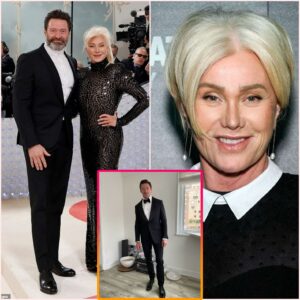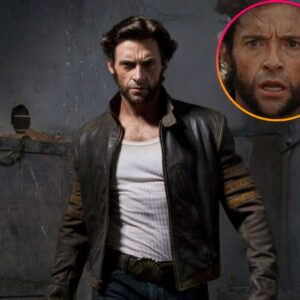Breaking: Jimmy Kimmel Loses Brand Deals Worth $500 Million After His Woke Oscars Monologue

In an astonishing twist of fate that has rippled through the entertainment industry, Jimmy Kimmel, the renowned comedian and late-night talk show host, finds himself at a career-defining crossroads. Following his recent Oscars monologue, which was heavily imbued with “woke” themes, Kimmel has reportedly lost brand deals collectively valued at an eye-watering $500 million. This development not only casts a shadow over Kimmel’s illustrious career but also ignites a fervent debate about the balance between political correctness, creative freedom, and the commercial imperatives that often drive the entertainment sector.
At the heart of this controversy lies Kimmel’s Oscars monologue. Known for his sharp wit and no-holds-barred approach to comedy, Kimmel took to the Oscars stage with a routine that was expected to push boundaries and provoke thought. However, the depth of the political and social commentary, focusing on themes of social justice, equity, and the need for systemic change within Hollywood and beyond, struck a nerve with a significant portion of the viewing audience—and, critically, with several major brands that had aligned themselves with the comedian.
The aftermath of the monologue was swift and severe. Within days, reports surfaced of brands dissociating themselves from Kimmel, citing concerns over alienating customers and stakeholders who may not align with the political and social viewpoints expressed. The staggering $500 million figure associated with these lost deals underscores not just the financial impact on Kimmel personally, but also the high stakes involved in the intersection of entertainment, commerce, and activism.
This isn’t the first time a celebrity has faced backlash for expressing political or social views, but the scale of the financial fallout for Kimmel is unprecedented. It raises pertinent questions about the role of entertainers in public discourse: Should they remain neutral, or do they have a responsibility to use their platforms to advocate for change? Moreover, it highlights the tightrope that brands walk in an era of heightened political sensitivity, balancing their desire for inclusivity with the fear of backlash.
The reaction from the entertainment industry and the public has been polarized. Some have lauded Kimmel for his courage in addressing pressing social issues, arguing that his monologue was a necessary commentary on the times we live in. Supporters argue that the essence of comedy is to challenge societal norms and provoke discussion, something Kimmel did effectively, even at great personal cost.
At the core of this situation is a broader debate over creative freedom and the commercial interests that drive much of the entertainment industry. Kimmel’s experience highlights a growing tension between artists who seek to use their platforms for advocacy and the commercial entities that support them. In an age where brand endorsements and partnerships can significantly impact a celebrity’s income and influence, the potential for such partnerships to censor or dilute creative expression is a concern.
This incident also prompts a reevaluation of the relationship between celebrities and their commercial partners. Should brands have a say in the content of an artist’s work, or should creative freedom reign supreme? And, in turn, how should celebrities navigate their roles as both entertainers and influencers in an increasingly polarized world?
Jimmy Kimmel’s loss of $500 million in brand deals marks a pivotal moment in the ongoing dialogue between entertainment, advocacy, and commerce. It serves as a cautionary tale for celebrities and brands alike, highlighting the need for a nuanced approach to partnerships that respects creative freedom while recognizing the diverse views of the audience.
As the dust settles, the implications of this event for the entertainment industry and beyond are yet to be fully understood. What is clear, however, is that the incident has sparked a much-needed conversation about the power of celebrity influence, the responsibility of brands in shaping public discourse, and the place of “wokeness” in mainstream entertainment.
In the end, the controversy surrounding Jimmy Kimmel’s Oscars monologue and its fallout underscores the complex, often fraught relationship between public figures, their audiences, and the commercial interests that support them. As we move forward, finding a balance that honors creative integrity, social advocacy, and commercial viability will be crucial for the future of entertainment in a rapidly changing social and political landscape.
News
HOT NEW : Ryan Reynolds reveals if his and Blake Lively’s fourth child’s name is on Taylor Swift’s new album
The IF actor welcomed his fourth child with the It Ends With Us actress in early 2023 While we may have gotten the names of Ryan Reynolds’ and Blake Lively’s second…
Hugh Jackman shares heartwarming family birth – after his children revealed they were ‘worried’ for their dad following split from Deborra-Lee Furness
Hugh Jackman announced some exciting news on Monday when he revealed a very anticipated birth finally happened in his home. The Hollywood star, 55, took to his Instagram…
Hugh Jackman shares heartwarming family birth – after his children revealed they were ‘worried’ for their dad following split from Deborra-Lee Furness
Hugh Jackman announced some exciting news on Monday when he revealed a very anticipated birth finally happened in his home. The Hollywood star, 55, took to his Instagram…
SEE : Sad detail in Hugh Jackman’s bachelor pad following his split from wife Deborra-Lee Furness
Fans have pointed out a sad detail in Hugh Jackman‘s latest selfie from inside his bachelor pad in New York City following his split from wife Deborra-Lee Furness. The 55-year-old actor…
HOT NEWS : Deborra-Lee Furness breaks silence on split from Hugh Jackman as she reflects on her life as a single woman
Deborra-Lee Furness has spent the months since her shock split from husband Hugh Jackman reflecting on her new single life. The pair split in September last year, and last…
The Worst Things Wolverine Has Ever Done: Killing X-Men, Creeping On Mary Jane & More
From all the X-Men movies, including the acclaimed “Logan,” to animated series like “X-Men ’97,” Wolverine is one of the biggest fan-favorite Marvel superheroes. With razor-sharp indestructible…
End of content
No more pages to load










